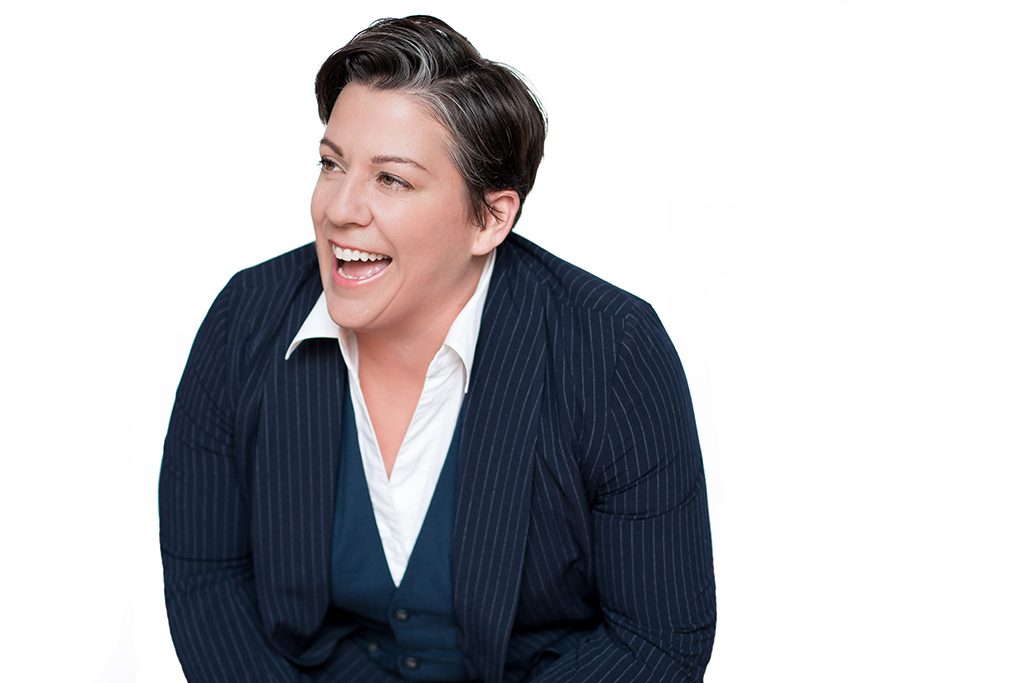The Blue Collar CEO wants more respect for the skilled trades and increased diversity within the industry.
Mandy Rennehan, aka the Blue Collar CEO, is the head of retail facilities construction firm Freshco. She closed out the Mechanical Contractors of Canada’s annual conference in Nashville with a keynote about the social stigma attached to the trades and where the industry needs to go and who they need to hire to continue to prosper.
“We have such a supply and demand issue in the industry as a whole, and the reason why is that kids and even at a lot of parents (when they were their kids age) really wanted to be working with their hands and minds together, they didn’t want to go to university, but they felt obliged to go because that’s what they were told to do,” Rennehan said.
Rennehan refers to the stigma surrounding a career in the trades as “tradeism,” and said she’s spent the last 24 years watching how skilled artisans are treated in the industry.
“They love you when they need you, but you’re not considered a professional like a lawyer, a doctor, or an accountant. Why? People go to school for four to five years and without them, you would not function as a human being, but yet they’re told ‘if you’re charging me $55/hour, you’re high,” she said.
Rennehan implored the audience of construction leaders to do a better job of marketing themselves as an attractive career option and said, “we give everything away because we’re nice.” She recently met with Prime Minister Justin Trudeau and his cabinet and said they agreed with her assertion that more can be done.
“They agreed there’s a lot of silos in the industry that are doing great things but aren’t getting traction or impact because we don’t have a collaborative system where we’re working as one. I explained from a business and entrepreneurial standpoint that if we were able to put together a campaign that brought together all of the shareholders and the assets of industry, we could really do some great damage and be a pioneer in this in North America to say ‘come over here to this side, this is where you belong, and they got that,” she said.
Rennehan also pointed to not only the fact that women only make up four percent of the industry but that of that number many leave the industry.
“When you look at the size of the trade industry as a whole, it’s massive,” she said. “When you look at 96 per cent of those people being male, it’s daunting from a female perspective to think, how am I going to fit in here, and am I welcomed?” she said.
Rennehan added women who do join the industry see the majority of men are welcoming and appreciate the new perspective women bring, but many companies are not set up to understand that “women come with a different set of instructions.”
“It shouldn’t be how does a woman fit in a men’s workforce. Why are we not training the males in personal development curriculums on ‘how to respect her being a minority here in the workplace?’ There’s a lot of education that needs to happen on a common-sense level,” she said.
Rennehan said the industry has made efforts and is seeing progress in embracing a changing workforce and cited her own experiences.
“I’m a female, I’m gay, and they don’t care. But you have to realize this is an industry where minorities are going to say, ‘are they going to accept me?’ I’m saying to them just because that burly white guy over there is a plumber doesn’t mean he isn’t a wonderful human being. No judgment on either side and I’m encouraging people of all minorities to know that we’re all the same, we just look different and really there’s a place here if you want it,” she said. “But when you’re met with let’s just say ‘deflection’ don’t walk away, it’s everywhere, not just our industry.”









Recent Comments
comments for this post are closed